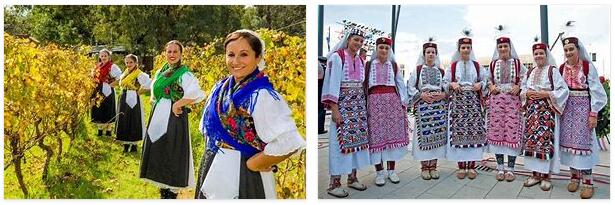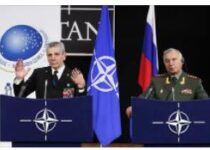Croatia Traditions and Literature
TRADITIONS
According to aparentingblog, the rich heritage of traditional songs and dances that formed the soul of Croatian folklore is performed by numerous professional groups and is no longer closely linked, as indeed everywhere in Europe, to the expression of local communities. Furthermore, since Croatia is open to a considerable tourist flow from Europe, it has taken on a distinct Western cultural physiognomy even before the other countries of the former Balkan Yugoslavia, in particular in Dalmatia; family and clan ties, however, are always deeply felt, especially in the innermost part of the country, which has maintained closer relations with the Slavic cultural roots. § Croatian cuisine reflects the double soul of the country, both Balkan and Mediterranean: everywhere you can find burek (a savory pie that alternates layers of pasta with cheese or minced meat) and piroska, pancakes stuffed with cheese; among the specialties of the inland areas are the manistra or bobica, made with beans, corn and smoked ham and the cheese dumplings known as struckle; on the sea of the Dalmatian coast, fish is cooked and brodet is prepared, a soup based on fish and rice. Wherever a meal drinking plum brandy, plum brandy, or crosses, herbal.
LITERATURE
The first Croatian literary texts have a religious or ecclesiastical character and descend almost entirely from the Cyril-Methodian tradition (see Methodius and Cyril (Constantine) known as the philosopher: they are largely liturgical, sacred and moralistic texts, hagiographic narratives and finally legal works of Latin derivation. At the end of the 15th century a rich and varied production in Latin, Italian and Croatian flourished in the cities of the Dalmatian coast. The main center of literary activity was Ragusa (Dubrovnik), which it managed to maintain even under Turkish domination (1526-1806) a great relative autonomy. Among the most important authors are the poets Marko Marulić (1450-1524), author of the religious poem Judith, Džore Držić (Giorgio Darsa, 1461-1501), the playwright Marin Držić (Marino Darsa, 1508-1567), who brought the Renaissance drama to its maximum development, and, later, Ivan Gundulić (Giovanni Gondola, 1589-1638), author of the epic poem Osman and the drama Dubravka, the lyric poet Dinko Zlatarić (1558-1609) and the versatile Junije Palmotić (1606-1657), who essentially excelled in dramatic production. With these writers ends the most flourishing period of Croatian literature, which after them went impoverishing in form and content. Neglected in the first half of the eighteenth century, the Croatian letters were reawakened mainly thanks to Antun Matija Reljković (1732-1798), author of a poem with an Enlightenment flavor (The satyr or savage man). A radical renewal took place only at the beginning of the nineteenth century when, with the rise of a political and cultural movement that aimed to achieve the unification of all southern Slavs (Illyrian), new cultural institutions, museums, libraries, theaters and magazines were founded and a new literature of a romantic nature developed. Promoted by Janko Drašković (1770-1856), the Illyrian movement, which had its most important cultural center in Zagreb, was developed by Ljudevit Gaj (1809-1872), its greatest exponent. He was responsible for the reform of the Croatian alphabet, which was imposed as a literary language common to all Croats, in order to free them from the cultural subjection of a Germanizing or Magyarizing bourgeoisie. In the midst of the mediocrity of the Illyrian writers, often improvisers, the poets Ivan Mažuranić (1814-1890), Petar Preradović (1818-1872) and Stanko Vraz emerged (1810-1851), in addition to the playwright Dimitrije Demeter (1811-1872). In the sixties and seventies of the century the romantic themes were abandoned and prose began to flourish, especially in the forms of the humorous story and the historical novel: among the most important authors are August Šenoa (1838-1881) and Zmaj Jovan Jovanović (1833-1904). Finally, during the last decade of the nineteenth century, naturalism and realism appeared on the Croatian literary scene : the main exponents were Eugen Kumičić (1850-1904), Ante Kovačić (1854-1889), Ksaver Šandor Ðalski (1854-1935), nostalgic descriptor of a world overwhelmed by civil evolution and social progress, and Josip Kozarac (1858-1906). At the beginning of the twentieth century, the Croatian literary world, under German, French and Italian influences, welcomed modernism in the voices of Vladimir Nazor (1876-1949), Ivo Vojnović (1857-1929), Vladimir Vidrić (1875-1909), Milan Begović (1876-1948), Antun Gustav Matoš (1873-1914). After the First World War, Futurism, Expressionism and Surrealism, always of foreign import, caused lively turmoil throughout Yugoslavia. The most prominent personality was Miroslav Krleža (1893-1981), whose vast work ranges from poetry (Three symphonies, The book of lyrics) to the dramas of Legenda and critical essays. Among the poets dominated Tin Ujević (1891-1955), in whose lyric the anxieties, trepidations and hopes of an era are reflected. Among the writers we remember S. Kolar (1891-1963), V. Kaleb (1905-1996); among the poets D. Cesarić (1902-1980), I. Kusan (b. 1933) and especially Dragutin Tadijanovic (b. 1905), perhaps the greatest Croatian poet of the twentieth century; among the playwrights M. Matković (1915-1985), M. Franičević (1911-1990), I. Raos (1921-1987). In the last twenty years of the twentieth century, Croatian literature underwent a great renewal in form and style: among the exponents of this revival, the novelists N. Fabrio (b. 1937), M. Peić (b. 1923). He was born in Sarajevo, but has lived in Zagreb since the outbreak of the war Miljenko Jergović (b. 1966), playwright and storyteller who skilfully uses many expressive registers (Mama Leone, 2002; La magione di walnut, 2005); finally, the reflection on the post-war crisis experienced by young Croatians narrated by Pavičić Jurica (b. 1965) in Montoni d’alabaster, 1996, from which the director Vinko Brešan drew I witnesses (2004), is interesting. Finally, the essay-stories that make up are worthy of note Balkan Express by Slavenka Drakulić (b.1949).



